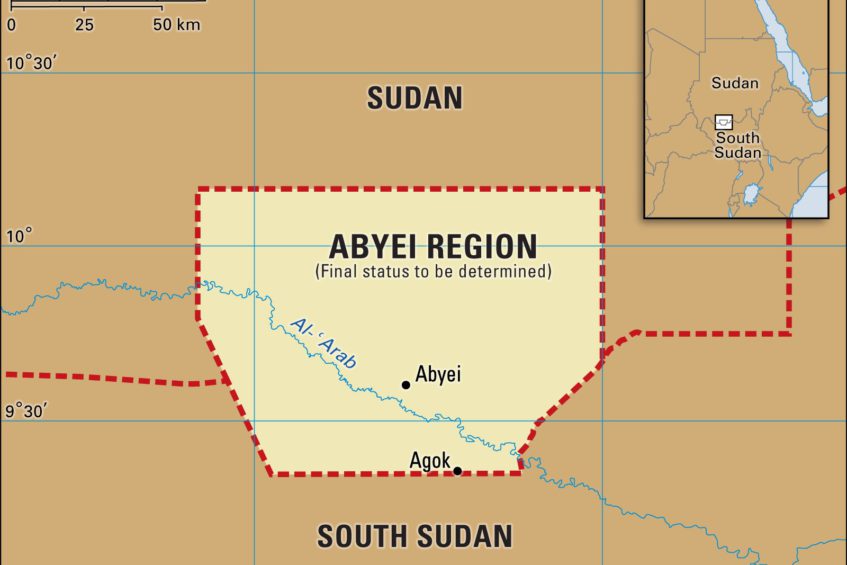You are here: Home | National News | News | Peace | Politics | Kiir forms committee to initiate dialogue over Abyei status

The border region of Abyei has been contested since South Sudan gained independence in 2011.
President Salva Kiir has constituted a high-level committee to initiate dialogue with the Sudanese government on the final status of the Abyei Administrative Area.
In a presidential decree read on the state-run SSBC TV Monday evening, Kiir appointed a ten-member committee to lead the process.
This comes a week after armed men allegedly aided by a Sudanese army outfit killed 12 civilians and wounded several others in Abyei.
The team comprises three members of the Revitalized Transitional National Legislative Assembly and four other senior SPLM cadres.
They include Assa Abas Akuei, Dr Luka Monoja, Deng Biong Mijak, Majur Babur Ajang, James Deng Lual and Kom Kom Geng.
They will be led by Tut Gatluak, the Presidential Advisor on Security Affairs, deputized by Deng Alor Kuol, the minister of East African Affairs.
The committee is tasked with negotiating with the government of Sudan in order to reach an amicable solution on the status of Abyei.
They are expected to feed President Salva Kiir with monthly updates on the progress of the negotiation.
The team has been advised to negotiate with Khartoum in the spirit of the Comprehensive Peace Agreement signed between the two countries in 2005.
The oil-rich border region of Abyei has been contested since South Sudan gained independence in 2011.
The Abyei Area was accorded a “special administrative status” by the 2004 Protocol on the Resolution of the Abyei Conflict, known as, the Abyei Protocol.
Under the terms of the Protocol, the Abyei Area was declared part of the states of South Kordofan and Northern Bahr el Ghazal and issues related to it to be determined by the Presidency made up of President Salva Kiir and former Sudanese President Omar al Bashir.
After years of contentions between leaders in South Sudan and Sudan on who is eligible to vote in the referendum, the nine Ngok Dinka chiefdoms took the matter into their own hands by organizing their own popular vote.
They cited the Abyei Protocol in the CPA, and the ruling by the International Permanent Court of Arbitration, which proclaimed that only the Ngok Dinka tribe and permanent residents may vote.
The Sudanese government wanted the nomadic Arab Misseriya tribe, whose cattle accesses pasture lands in Abyei annually, to be accorded full voting rights.
Several inter-communal clashes between the armed Misseriya pastoralist tribe of Sudan and the Dinka Ngok of South Sudan have led to many civilian deaths in the last decade.
Support Eye Radio, the first independent radio broadcaster of news, information & entertainment in South Sudan.
Make a monthly or a one off contribution.
Copyright 2024. All rights reserved. Eye Radio is a product of Eye Media Limited.